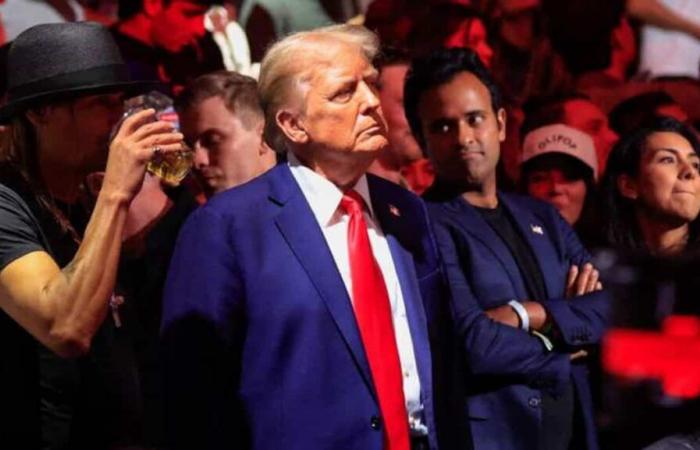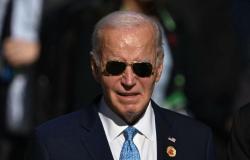Donald Trump said Monday he wanted to declare a state of national emergency to implement his plan for mass expulsion of migrants, confirming that he intended to use the armed forces in this sense.
“Good news: There are reports that the incoming Donald Trump administration is prepared to declare a national emergency and use military resources to fight the invasion [permise par le président Joe] Biden through a program of mass deportations,” wrote Tom Fitton, director of the conservative organization Judicial Watch, on the future president’s Truth Social platform.
A publication to which the Republican billionaire simply responded in the same social network: “It’s true.”
The United States has more than 11 million illegal immigrants, according to estimates, and human rights groups are concerned about the ravages of the Republican’s project on this population and on the rule of law.
A host of economists have also warned that in addition to the staggering cost of such a program, sending back millions of migrant workers would have an immeasurable impact on the American economy, which is already experiencing a labor shortage. artwork.
Donald Trump declared in April that the National Guard, a military body dependent on the American states, “should be capable” of taking care of expulsions.
“If this is not the case, I would use the army,” meaning federal troops, he told Time.
The Constitution allows the president to declare a “national emergency” in exceptional situations. During his first term, Donald Trump implemented this provision “concerning the southern border” of the United States, in order to allocate an $8 billion budget to build a wall on the border with Mexico.
Building on his victory on November 5 and before taking office on January 20, Donald Trump has already signaled his desire to act quickly on this subject, notably appointing three hard-liners on immigration to key positions.
Tom Homan, former director of the immigration enforcement agency (ICE) during Trump’s first term, has this time been named “border czar”, a position for this with still unclear contours and responsibilities.
Between 2017 and 2018, he oversaw a policy that was as brief as it was controversial, leading to the separation of 4,000 migrant children from their parents placed in detention.
“If you are here illegally, you better watch your back,” the former police officer said in July.






